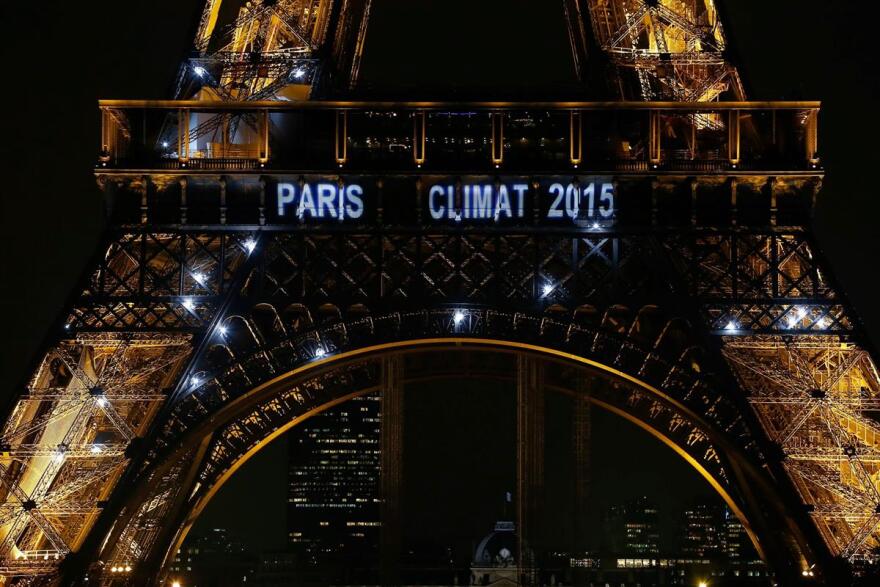Don’t let the recent record snow fool you. 2015 was the warmest year since record keeping began in the 1880s. And that’s why scientists are saying the historic Paris Climate Agreement came just in time. Robbie Harris spoke with a Virginia Tech Researcher who’s been a delegate to the summit for years. She says she’s never seen anything like what happened there this past December.
“People were crying, negotiators were crying, government officials were crying. It’ s like we did it. We finally did it. We adopted an agreement.”
Carol Franco is an ecological economist in the department of environmental resources at Virginia Tech.
“195 countries agreed on something. That is historic that is something never seen before.
That agreement is to keep the earth’s temperature from rising more than 2 degrees beyond what it was before the industrial age. It will take years to work out the details, but Franco says, there’s no longer any debate about the science of climate change and that’s why this time, so many countries signed on.
“The United States, China, India, saying they found this agreement it to be fair enough, ambitious enough, comprehensive enough. ‘I’m supporting it 100 per cent.’ I found countries such as Venezuela, Bolivia, Cuba saying this agreement is fair enough, ambitious enough."
And that’s why countries agreed to pony up even though the costs to address climate change are estimated at 100 billion dollars a year. Developing nations as well as developed, are in the process of submitting what are called, their intended nationally determined contributions or INDC’s.
“Every 5 years those INDCs need to be updated and scaled up; Meaning not only do we need to what we said we were going to do, we need to increase our ambition and that’s how the Paris agreement is going to help us to hold temperature below the 2 degrees above pre- industrial levels. Because it’s not just, this is what you’re doing and that’s it. This is what you’re doing until 2020, but then what? How are you going to keep going? How are you going to increase that ambition and how are you going to increase that reduction in green house gas emissions?"
Some worry that there are no teeth in the agreement, no financial sanctions for not meeting the goals agreed to in Paris. Others suggest, just keeping the planet from increasing 2 degrees, won’t be enough. But if 2 degrees doesn’t sound like much, quipped one scientist at the conference, think about the difference in how you’d feel if you had a fever of 102 vs 104.




